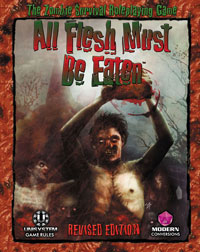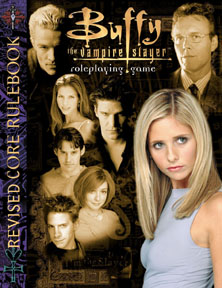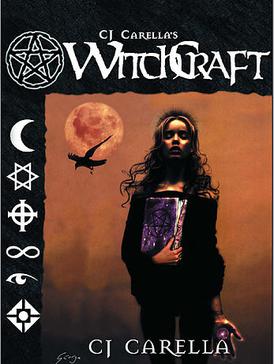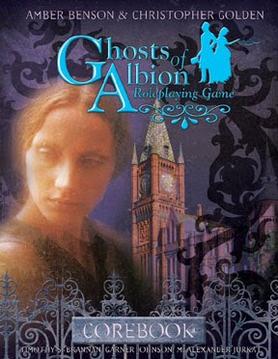
Buffy the Vampire Slayer is an American supernatural drama television series created by writer and director Joss Whedon. It is based on the 1992 film of the same name, also written by Whedon, although they are separate and otherwise unrelated productions. Whedon served as executive producer and showrunner under his production tag Mutant Enemy Productions.

Angel is an American supernatural television series, a spinoff of Buffy the Vampire Slayer. The series was created by Buffy's creator, writer and director Joss Whedon, in collaboration with David Greenwalt. It aired on The WB from October 5, 1999, to May 19, 2004, consisting of five seasons and 110 episodes. Like Buffy, it was produced by Whedon's production company, Mutant Enemy.

Faith Lehane is a fictional character created by Joss Whedon for the television series Buffy the Vampire Slayer. Played by actress Eliza Dushku, Faith was introduced in the third season of Buffy and was a focus of that season's overarching plot. She returned for shorter story arcs on Buffy and its spin-off, Angel. The character's story is continued in the comic book series Buffy the Vampire Slayer Season Eight, and she also appears in apocryphal material such as other comic books and novels. Faith was set to receive her own spin-off television series after the final season of Buffy, but Eliza Dushku declined the offer, and the series was never made. The character later co-stars in the 25-issue comic book Angel & Faith beginning in August 2011 under the banner of Buffy the Vampire Slayer Season Nine, the story taking place mostly in London and the surrounding area. Seven years after the character's creation, Whedon granted her the surname Lehane for a role-playing game and subsequent material. The last issue of Season Eight was the first source officially confirmed to be canon that referred to Faith by her full name.
The Buffyverse or Slayerverse is a media franchise created by Joss Whedon. The term also refers to the shared fictional universe in which the TV series Buffy the Vampire Slayer and Angel are set. This term, originally coined by fans of the TV series, has since been used in the titles of published works, and adopted by Joss Whedon, the creator of the fictional universe. The Buffyverse is a place in which supernatural phenomena exist, and supernatural evil can be challenged by people willing to fight against such forces. Much of the licensed Buffyverse merchandise and media, while being official, is not considered to be canon within the universe.

All Flesh Must Be Eaten or AFMBE is an Origins Award nominated survival horror role-playing game (RPG) produced by Eden Studios, Inc. using the Unisystem game system. AFMBE is derived from the traditional horror movie depictions of zombies who rise from the dead as mindless monsters that consume the living. In addition to producing a revised edition and many RPG supplements, there have been many works of fiction published that take place in one of the game's many settings.

Darla is a recurring fictional character created by Joss Whedon and played by Julie Benz in the first, second, and fifth seasons of the American supernatural television series Buffy the Vampire Slayer. The character later appeared in the Buffy spin-off series Angel, making at least one appearance in every season. She made her last television appearance in 2004, appearing as a special guest star in the fifth and final season of Angel.
Buffy studies, also called Buffyology, is the study of Joss Whedon's popular television series Buffy the Vampire Slayer and, to a lesser extent, its spin-off program Angel. It explores issues related to gender, family, ethics and other philosophical issues as expressed through the content of these shows in the fictional Buffyverse.
The Buffyverse canon consists of materials that are thought to be genuine and those events, characters, settings, etc., that are considered to have inarguable existence within the fictional universe established by the television series Buffy the Vampire Slayer. The Buffyverse is expanded through other additional materials such as comics, novels, pilots, promos and video games which do not necessarily take place in exactly the same fictional continuity as the Buffy episodes and Angel episodes. Star Trek, Star Wars, Stargate and other prolific sci-fi and fantasy franchises have similarly gathered complex fictional continuities through hundreds of stories told in different formats.

An attribute is a piece of data that describes to what extent a fictional character in a role-playing game possesses a specific natural, in-born characteristic common to all characters in the game. That piece of data is usually an abstract number or, in some cases, a set of dice. Some games use different terms to refer to an attribute, such as statistic, (primary) characteristic or ability. A number of role-playing games like Fate do not use attributes at all.
In the fictional world of the television series Buffy the Vampire Slayer and its spin-off series Angel, a vampire is a unique variety of demon that can only exist on the earthly plane by inhabiting and animating a human corpse. In Fray, a Buffy comic book spin-off set about a century in the future, vampires are also called lurks.

The Angel Roleplaying Game is a role-playing game published by Eden Studios, Inc. in 2003.

Unisystem is a generic role-playing game system produced by Eden Studios, Inc. It is used in All Flesh Must Be Eaten, the Buffyverse role-playing games, CJ Carella's WitchCraft, Conspiracy X , and several other games. Games designed using Unisystem have been nominated for, and won, Origins Awards.
Eden Studios, Inc. is an American role-playing game publisher founded in 1996 by George Vasilakos, M. Alexander Jurkat, and Ed Healy. Currently run by Mr. Vasilakos, Eden Studios is best known for Conspiracy X, the Buffyverse role-playing games, All Flesh Must Be Eaten, CJ Carella's WitchCraft and most recently for the City of Heroes Roleplaying Game, an unreleased adaptation of Cryptic Studios' MMORPG City of Heroes. Although there has been no activity or news from the company in over a year, with their Facebook page's last post in November 2020. It is unknown at this time if the company is active.

The Buffy the Vampire Slayer Roleplaying Game (BtVSRPG) is a role-playing game published by Eden Studios, Inc. in 2002. It is based on the popular television series Buffy the Vampire Slayer that ran from 1997-2003. The BtVPSRPG uses the Unisystem game engine that many of Eden's games used.
The fictional universe established by television series Buffy the Vampire Slayer and Angel and the film Buffy the Vampire Slayer has been parodied or paid tribute to by a number of unofficial productions, most notably fan films and adult films.

CJ Carella's WitchCraft, or more informally WitchCraft (ISBN 978-1891153402), is a modern horror role-playing game published by Eden Studios, Inc. It is based on the Unisystem game system and had been previously published by Myrmidon Press. In both cases it was designed and written by C. J. Carella. WitchCraft was the first RPG to use the Unisystem game system.
Now most commonly referred to as "Cortex Classic," the Cortex System is a generic RPG system based on the Sovereign Stone role-playing game system,, and was developed by Margaret Weis Productions, Ltd for the Serenity Role Playing Game. It was subsequently used for their licensed Battlestar Galactica and Supernatural RPGs, and brought out as a stand-alone system in the Cortex System Role Playing Game book. Serenity, using the Cortex System, was the 2005 Origins Award Gamer's Choice Role Playing Game of the Year.

The Ghosts of Albion Roleplaying Game is a role-playing game published by Eden Studios, Inc. in 2008.
Whedonverse is a collection of American comic books published by Boom! Studios and based on television series created by Joss Whedon.










